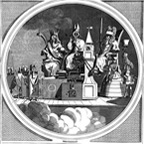Abstract [It]: La Questione adriatica si pone come una questione di memorie divise dalla presenza non solo di un confine politico-giuridico ma anche linguistico-culturale. Concentrarsi sullo studio della memoria in Friuli Venezia Giulia significa entrare in un crogiuolo di culture politico-giuridiche e tradizioni Alto Adriatiche, che insieme a fattori economici hanno costituito la ratio profonda per la concessione delle attuali sfere di autonomia alla Regione a Statuto speciale, la cui stabilità è stata assicurata in forza della volontà dei politici di modificare gli equilibri locali, unendo – antistoricamente – la Venezia Giulia al Friuli, che costituiva un entroterra agricolo.
Abstract [En]: The Adriatic Question arises as an issue of memories divided by the presence not only of a political-juridical border but also of a linguistic-cultural one. Focusing on the study of memory in Friuli Venezia Giulia means entering a melting pot of political-juridical cultures and Northern Adriatic traditions, which together with economic factors have constituted the profound ratio for the granting of the current spheres of autonomy to the Special Statute Region, whose stability has been ensured by the will of the politicians to change local balances, uniting – anti-historically – Venezia Giulia with Friuli, which constituted an agricultural hinterland.
Scarica il file in formato PDF
SOMMARIO: 1. Introductory Notes: The Binomial “Unity-Autonomy” and the Adriatic Question. – 2. A Territory with an Uncertain Border: Trieste and Venezia Giulia. – 3. The Typically Julian Multiethnicity. – 4. An Economy in Crisis. – 5. A Land so Close and yet so Different: Friuli. – 6. Towards the Institution of Friuli-Venezia Giulia. – 7. From the Invention of a Region to the Elimination of a Hyphen. – 8. A Decisive Passage: The Multiple Proposals for the Regional Organization. – 9. The Ratio of the Special Status of Friuli Venezia Giulia. – 10. Final Considerations






